You might be surprised to learn that Africa’s largest country by area is a treasure trove of exciting experiences, waiting to be explored. With a stunning 1600km coastline and a rich history, this destination is a perfect blend of culture, adventure, and natural beauty.
As you plan your trip to this fascinating country, you’ll discover seven UNESCO World Heritage sites, ancient Roman ruins, and breathtaking desert landscapes. The world is full of incredible places, but this hidden gem is sure to captivate your senses and leave you wanting more. With travel becoming increasingly accessible, now is the perfect time to explore this incredible destination.
Discovering Algeria’s Rich Heritage
With a history that includes Berber, Phoenician, Roman, Byzantine, Ottoman, and French influences, Algeria is a treasure trove of cultural experiences. As you delve into this North African country, you’ll discover a complex narrative that has shaped the nation over the years.
A Brief History of North Africa’s Largest Country
Algeria’s history is marked by its struggle for independence, gaining freedom from France in 1962 after a bloody war. This significant event has contributed to the national identity you’ll encounter today. The country has since navigated through various phases, including a civil war from 1991 to 2002, and has emerged as a stable destination for travelers.
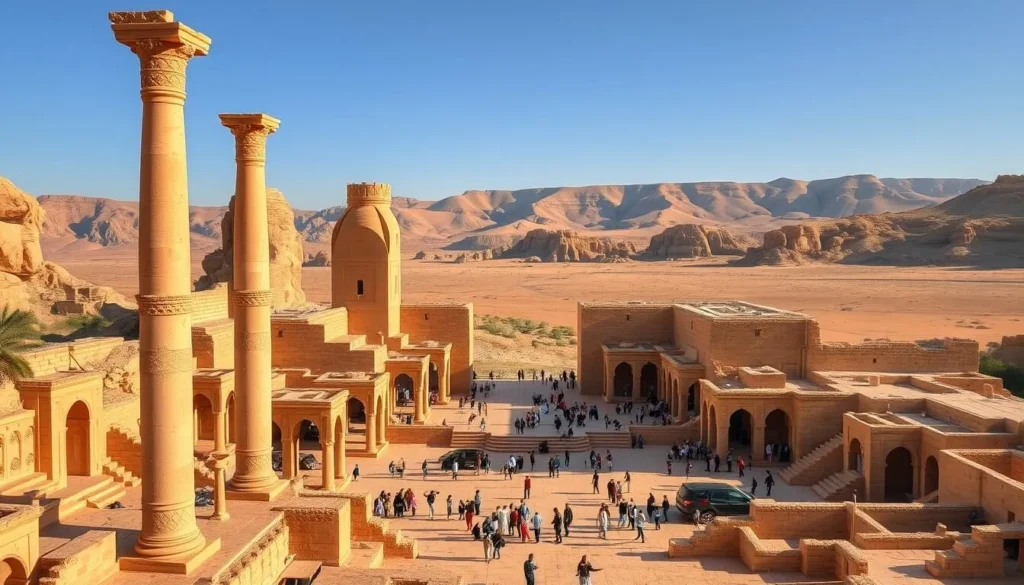
Why Algeria Should Be on Your Travel Radar
As Africa’s largest country by land area, Algeria encompasses diverse landscapes, from Mediterranean coastlines to the vast Sahara Desert. Major city like Algiers, Constantine, and Oran showcase a blend of Islamic, Ottoman, and French colonial architecture. The city of Algiers, for instance, is home to several historical landmarks.
| Historical Influence | Cultural Significance | Notable Locations |
|---|---|---|
| Berber, Phoenician, Roman | Rich cultural heritage | Timgad, Tipasa |
| Ottoman, French | Architectural diversity | Algiers, Constantine |
| Islamic | Spiritual significance | Great Mosque of Tlemcen |
Algeria’s rich heritage is evident in its seven UNESCO World Heritage sites, traditional music, cuisine, and crafts. As a traveler, you’ll find that Algeria is a hidden gem waiting to be explored, offering a unique experience that brings you closer to the heart of North Africa, a significant part of the world.
Exploring Algiers: The White City
Algiers, known affectionately as “The White City,” is a treasure trove of history, architecture, and culture waiting to be explored. As the capital city of Algeria, it offers a unique blend of European and North African influences that are sure to captivate any traveler.
The Casbah of Algiers: A UNESCO World Heritage Site
The historic Casbah of Algiers is a labyrinthine journey through narrow alleys and traditional houses dating back to the 16th century. As a UNESCO World Heritage Site, it’s a place where you’ll discover local artisans, hidden palaces, and panoramic views of the bay. The Casbah is not just a historical area; it’s the heart of Algiers, filled with the sounds, smells, and tastes of traditional Algerian culture.
Martyrs’ Memorial Monument
Standing tall on the hills overlooking the city, the Martyrs’ Memorial Monument commemorates Algeria’s struggle for independence. Its three palm-like structures reach 92 meters high, symbolizing the nation’s fight for freedom. The museum beneath the monument provides a poignant insight into the country’s history.
Notre Dame d’Afrique
Notre Dame d’Afrique is a stunning example of Byzantine-style architecture, built in 1872. This Roman Catholic Church is one of Algiers’ most famous landmarks, located on a cliff overlooking the Bay of Algiers. The church represents Algeria’s religious diversity and offers breathtaking views of the city.
Botanical Garden Hamma
The Botanical Garden Hamma, also known as Jardin d’Essai, is a lush escape from the urban landscape. Covering an area of 58 hectares, it’s home to an estimated 1,200 different species of plants, including exotic trees, bamboo forests, and French-designed gardens. This garden is not only a tourist attraction but also a significant green space in the heart of the city.
As you explore Algiers, you’ll find that the city’s architecture is a mix of French colonial and traditional Moorish styles, particularly evident in the city center along Didouche Mourad Street and at the Grande Poste, one of the world’s most magnificent post offices. Algiers is a city that seamlessly blends its rich history with modern life, making it a fascinating place to visit.
Ancient Roman Treasures of Algeria
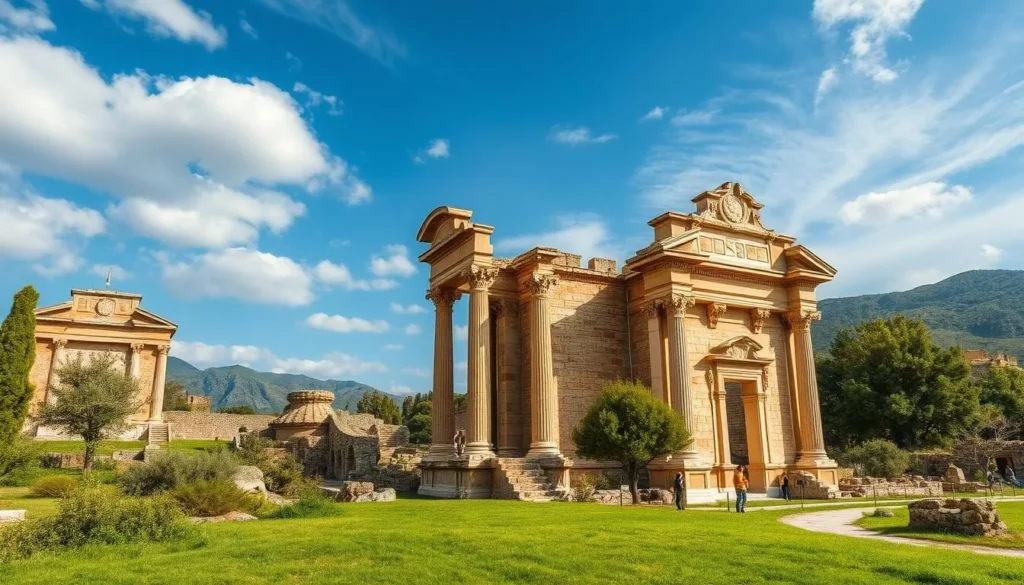
Discover the ancient Roman cities that have been preserved for centuries in Algeria. The country’s rich history is reflected in its impressive Roman ruins, which are a testament to the region’s cultural heritage.
Timgad: A City Frozen in Time
Timgad, often referred to as “North Africa’s Pompeii,” is a remarkable example of Roman urban planning. Founded by Emperor Trajan in 100 CE, the city boasts a grid-like street layout, magnificent public buildings, and the iconic Arch of Trajan. As you explore Timgad, you’ll be struck by the sheer scale of the ruins, which span over 50 hectares.
Tipasa: A Mediterranean Gem
Located on the Mediterranean coast, Tipasa offers a unique blend of Roman history and breathtaking natural beauty. The site features remnants of theaters, basilicas, and forums, providing a glimpse into the town’s ancient past. You can explore the ruins, take in the stunning views, and relax on the nearby beaches.
Djemila: A Hillside City of Mosaics
Djemila, meaning “beautiful” in Arabic, is a UNESCO World Heritage site that lives up to its name. Perched on a hillside in the Petit Kabyle mountains, the city features an extraordinary collection of Byzantine churches, temples, and forums. The on-site museum houses some of the most exquisite Roman mosaics in the world, including the renowned “Triumph of Dionysus.”
Algeria’s Roman ruins offer a unique and intimate experience, allowing you to connect with history in a way that’s not possible in more crowded European sites. With three UNESCO World Heritage sites to explore, you’ll be able to discover the rich cultural heritage of this fascinating country.
Constantine: The City of Bridges
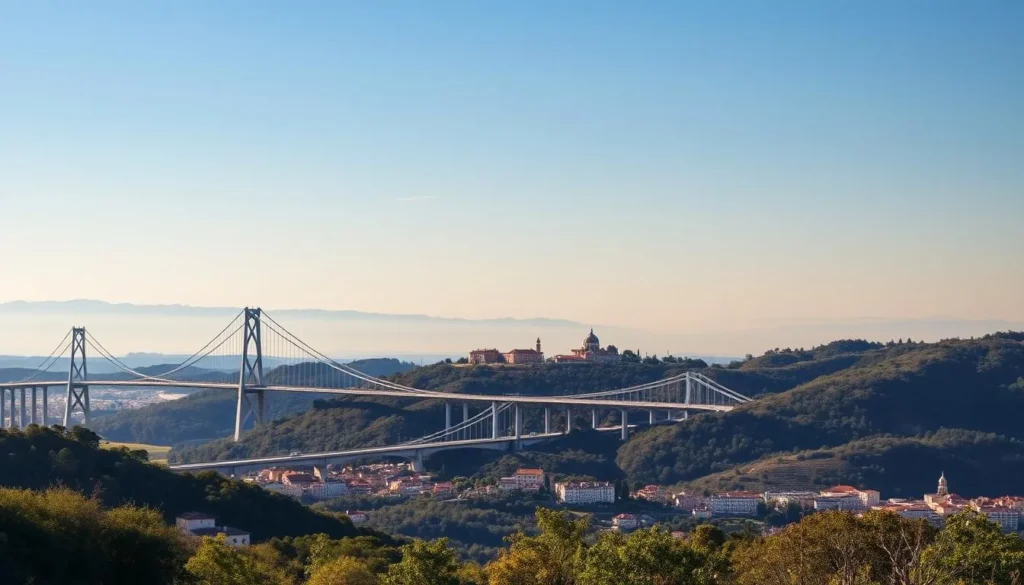
Constantine, a city perched on a rocky pinnacle, is a marvel of engineering and architecture. Since the 4th century BCE, it has occupied a unique position above the river Rhumel, encircled by 200m-deep ravines. The city’s ingenuity is a pleasure to admire, and its breathtaking views are a treat to behold.
Sidi M’Cid Bridge and Ravine Views
The Sidi M’Cid Bridge is a breathtaking example of suspension bridge engineering, spanning 164 meters across a 175-meter deep gorge. As you stand on the bridge, you’ll be treated to vertigo-inducing views that will leave you awestruck.
Ottoman Palace of Ahmed Bey
When you explore the Ottoman Palace of Ahmed Bey, you’ll discover exquisite 19th-century Islamic architecture with colorful tile work, intricate wooden ceilings, and peaceful courtyards. The palace is a testament to the refined aesthetic of Ottoman rule in Algeria.
Emir Abdelkader Mosque
The imposing Emir Abdelkader Mosque, one of Africa’s largest mosques, combines contemporary design with traditional Islamic architecture. As you visit the mosque, you’ll be struck by its grandeur and beauty.
As you explore Constantine, you’ll also have the opportunity to visit the National Museum, which houses an impressive collection of artifacts spanning the region’s Numidian, Roman, Byzantine, and Islamic periods. With its rich history and cultural significance, Constantine is a city that will captivate and inspire you.
From its panoramic viewpoints to its traditional markets and local cuisine specialties, Constantine offers a vibrant cultural scene that is waiting to be explored. As you wander through the city, you’ll be treated to a unique blend of history, culture, and natural beauty, making it a truly unforgettable experience in this remarkable city.
Algeria: Best Things to Do – Top Picks for Desert Adventures
The Sahara Desert, covering over 80% of Algeria’s territory, is a treasure trove of exciting experiences and breathtaking natural beauty. As you explore this vast desert landscape, you’ll discover a world of adventure that spans from prehistoric rock art to thrilling dune-bashing in 4×4 vehicles.
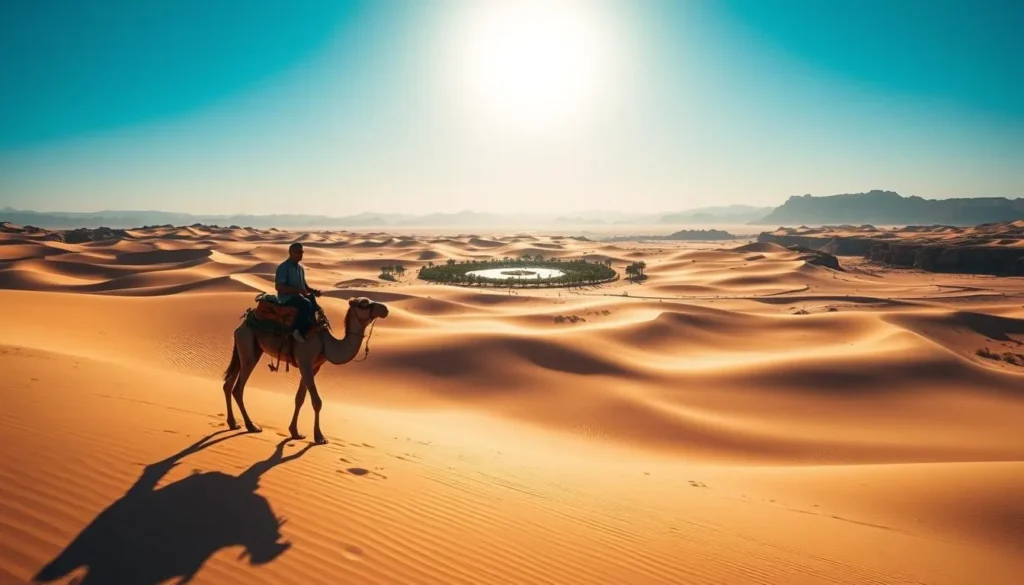
Tassili n’Ajjer National Park: Prehistoric Rock Art
Tassili n’Ajjer National Park is a UNESCO World Heritage site, featuring an otherworldly “forest of rock” with over 15,000 prehistoric petroglyphs and paintings. These ancient artworks depict a time when the Sahara was a lush savannah, teeming with elephants, giraffes, and crocodiles. As you explore this area, you’ll be transported back to an era long past.
Ahaggar National Park: Volcanic Landscapes
The volcanic landscapes of Ahaggar National Park showcase dramatic basalt formations rising from the desert floor. The high plateau of Assekrem, meaning “the end of the world,” offers what many consider the most spectacular sunrise views on the planet. This is a place where you can truly experience the vastness and beauty of the desert.
Timimoun: The Red Oasis
Timimoun, known as “The Red Oasis,” is a spectacular desert oasis set at the edge of an escarpment overlooking a sebkha (salt pan) and the undulating dunefields of the Grand Erg Occidental. Here, you can explore traditional architecture, date palm groves, and the striking contrast between the verdant oasis and the endless dunes. It’s a perfect introduction to desert life in this fascinating country.
Whether you’re interested in luxury camping under the stars or challenging multi-day camel treks led by Tuareg guides, Algeria’s desert adventures can be tailored to your comfort level. The best time to explore these desert regions is between October and April, when temperatures are more moderate. You’ll find that there are many places to visit and things to do in Algiers and beyond, making Algeria a unique destination.
Cultural Experiences in Tlemcen
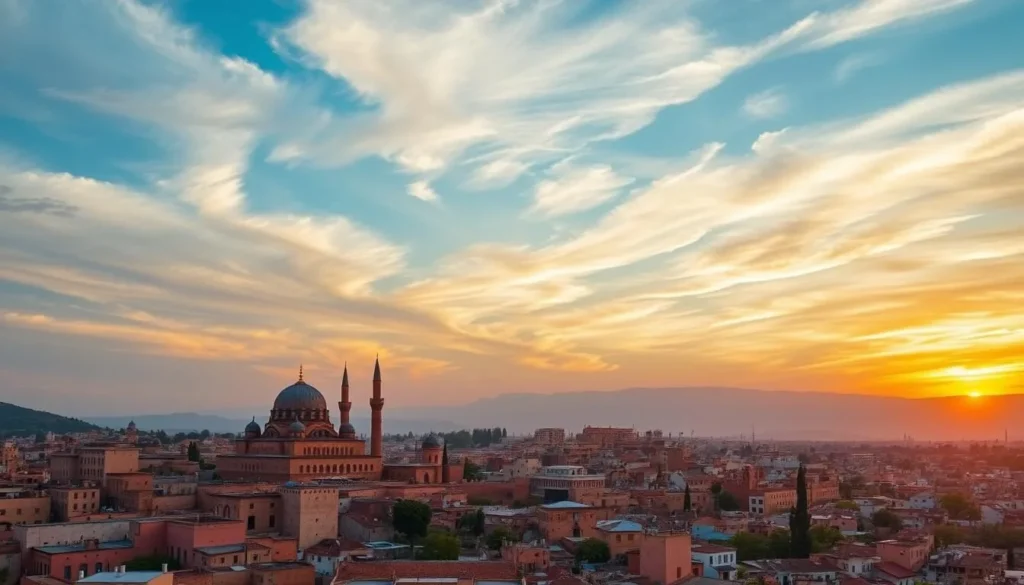
As you step into Tlemcen, you’re immediately immersed in a world of medieval mosques and palaces. This city is an architectural jewel, boasting a unique blend of Islamic and Moorish styles that will transport you to a bygone era.
The Great Mosque
The Great Mosque of Tlemcen, built in 1082, is one of North Africa’s most important Islamic monuments. Its distinctive horseshoe arches and intricate geometric patterns showcase the hybrid Hispano-Moorish architecture that defines this city.
El Mechouar Palace
El Mechouar Palace, the former royal residence of the Zianid dynasty, is a testament to the opulence of medieval Islamic courts. Its fortified walls, ornate reception halls, and beautiful gardens echo the design principles of Spain’s Alhambra.
Beni Add Cave
Just outside Tlemcen lies the Beni Add Cave, a natural wonder featuring spectacular stalactite and stalagmite formations. The colorful lighting creates an otherworldly underground landscape, providing a cool retreat from the North African sun.
Tlemcen’s cultural significance extends beyond its landmarks to its traditional crafts, particularly carpet weaving and the Chedda wedding dress, a UNESCO-recognized intangible cultural heritage.
Coastal Gems and Beach Escapes
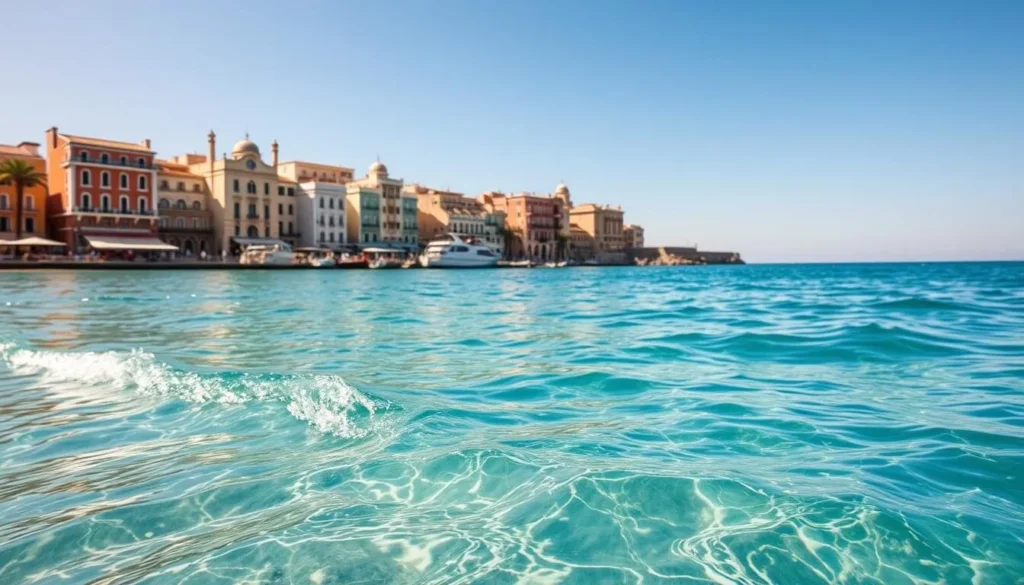
With a coastline stretching over 1,600 kilometers, Algeria presents a unique blend of beach escapes and cultural experiences. You can explore historic coastal cities, relax on pristine beaches, and enjoy the crystal-clear waters of the Mediterranean.
Annaba: Following St. Augustine’s Footsteps
Annaba, an enchanting coastal city, allows you to walk in the footsteps of St. Augustine, the influential 4th-century Christian theologian, at the ruins of Hippo Regius and the impressive hilltop Basilica of Saint Augustine that overlooks the sparkling Mediterranean. You can feel like you’re stepping back in time as you explore the historic sites.
Oran: Spain’s Former Port
Oran, Algeria’s second-largest city, showcases its Spanish heritage through landmarks like the imposing Santa Cruz Fort, which offers panoramic views of the city and sea. The distinctive Spanish-influenced architecture throughout its historic center adds to the charm of this vibrant area.
Mediterranean Beaches Worth Visiting
For a day trip from Algiers, consider visiting Tipasa, where Roman ruins meet the Mediterranean in a UNESCO World Heritage setting. You can combine archaeological exploration with a refreshing swim after touring the ancient site, making for a memorable trip. Algeria’s Mediterranean beaches range from popular urban stretches near major country cities to secluded coves accessible only by boat, offering options for every type of beach lover.
As you plan your trip to Algeria, the coastal region provides a perfect complement to the country‘s desert and mountain experiences, allowing you to create a varied itinerary that could include snorkeling in clear waters one day and exploring ancient ruins the next.
Practical Travel Tips for Algeria
To ensure a smooth and enjoyable trip to Algeria, it’s essential to be aware of some key travel tips. Whether you’re exploring the bustling streets of Algiers or venturing into the Sahara Desert, being prepared will make all the difference in your travel experience.
Getting Around: Transportation Options
Algeria’s major cities are surprisingly easy to navigate. In Algiers, for instance, you can use the metro or tram system to get around. The metro line, although limited, is being extended to the airport, making it a convenient option for travelers. If the metro doesn’t reach your destination, taxis are readily available and affordable, with fares typically not exceeding 400-500 DZD within the city center. For day trips or longer journeys between cities, you can choose between domestic flights operated by Air Algérie, comfortable long-distance buses, or hiring a private driver, which is particularly recommended for exploring remote areas like the desert regions.
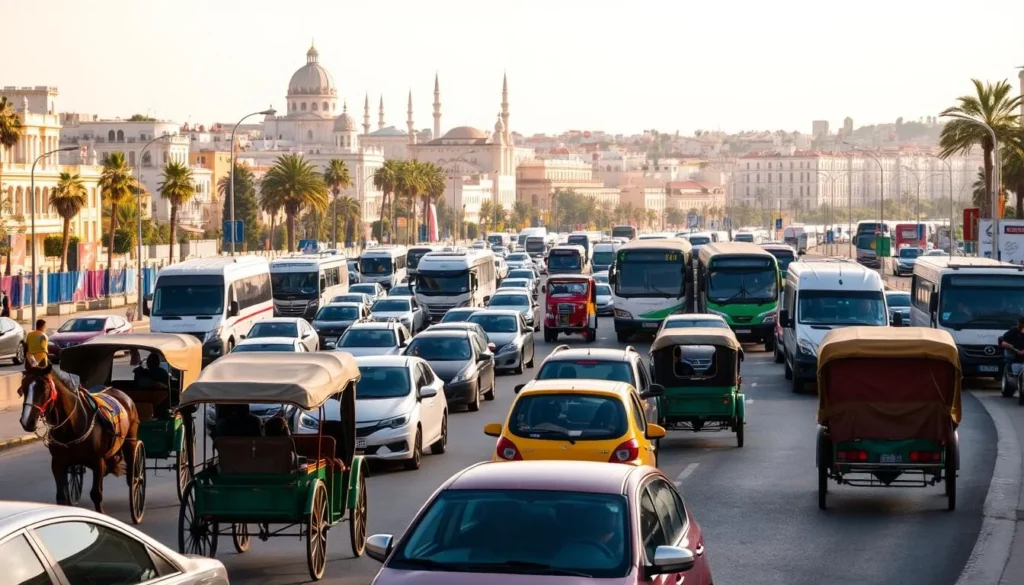
Safety Information for Travelers
Algeria is generally a safe country for travelers, with a visible police presence in tourist areas. However, it’s always wise to take standard precautions, especially in crowded places. Checking current travel advisories before your trip is also advisable.
Accommodation and Dining Recommendations
Where to Stay
Accommodation options in Algeria range from international hotel chains in major cities to boutique hotels in historic buildings. Mid-range hotels like Hotel ABC in Algiers offer good value with their central locations and English-speaking staff. For budget travelers, basic hotels or Airbnb options are currently the best available choices, as there are no backpacker hostels or guest houses in Algiers or Algeria.
Where to Eat
When it comes to dining, the best traditional Algerian cuisine is often served in family homes rather than restaurants. However, cities offer a mix of local eateries serving dishes like couscous and tagines, as well as French-influenced cafés and international options. Some key tips for dining include:
- Be prepared for meal time to be earlier than in some Western countries.
- Respect local customs, especially when dining in rural areas or family homes.
- Enjoy the local cuisine, which is a blend of Arab, Berber, and Mediterranean flavors.
By being informed and prepared, you can have a rewarding travel experience in Algeria, enjoying the way the country blends history, culture, and natural beauty.
Conclusion: Why Algeria Deserves More Recognition
Algeria stands out as a hidden gem in the world of travel, offering experiences that are both authentic and unforgettable. As you’ve explored throughout this article, the country is home to seven UNESCO World Heritage sites, spectacular desert landscapes, and pristine Mediterranean beaches.
When you visit Algeria, you’ll find that its capital city, Algiers, is a friendly and pleasant place to explore, with plenty of sites to see and easy day trips to nearby historical sites. The country’s relative isolation has preserved authentic cultural experiences, allowing you to engage with local traditions and hospitality in ways that are increasingly rare in more developed tourist destinations.
Now is the perfect time to plan your trip to Algeria, before it takes its rightful place among the world’s premier travel destinations. Whether you’re drawn to Roman ruins, desert adventures, or cultural immersion, Algeria rewards curious travelers with unforgettable experiences.
The above is subject to change.
Check back often to TRAVEL.COM for the latest travel tips and deals.
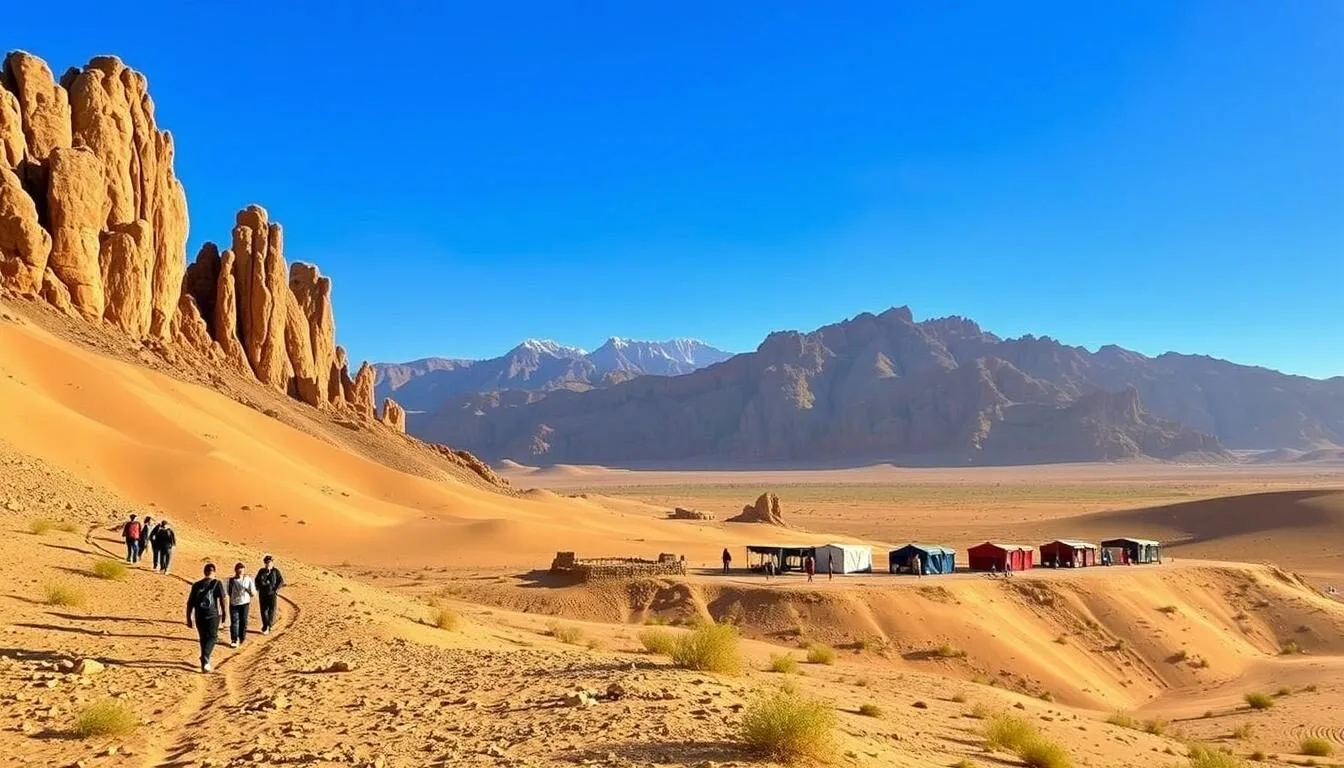
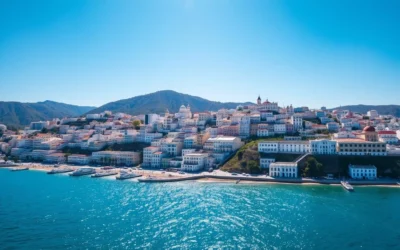
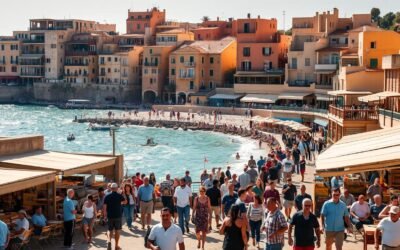
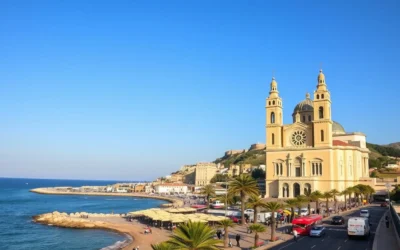
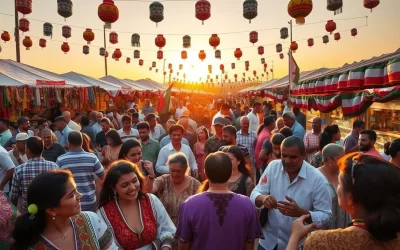
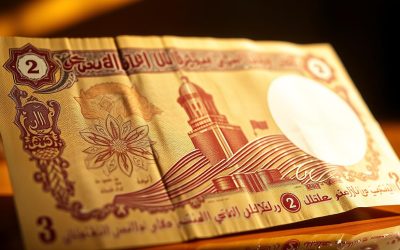
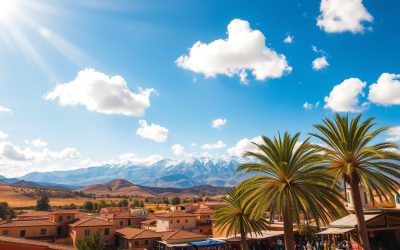
0 Comments